Sanjay Sarma Oruganti Venkata
A study on the ephemeral nature of knowledge shared within multiagent systems
Nov 08, 2022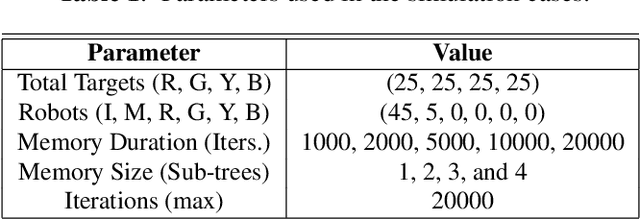
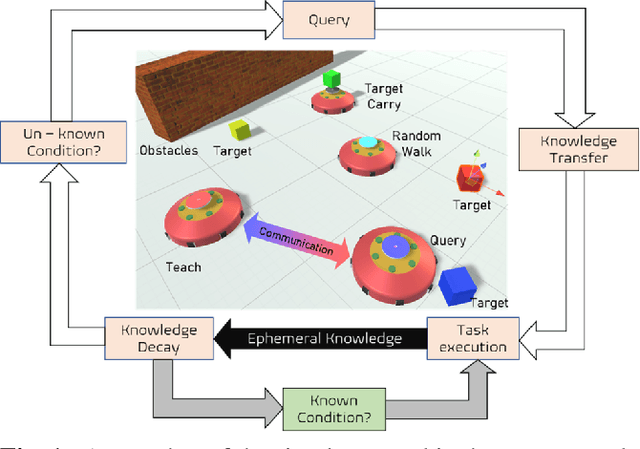
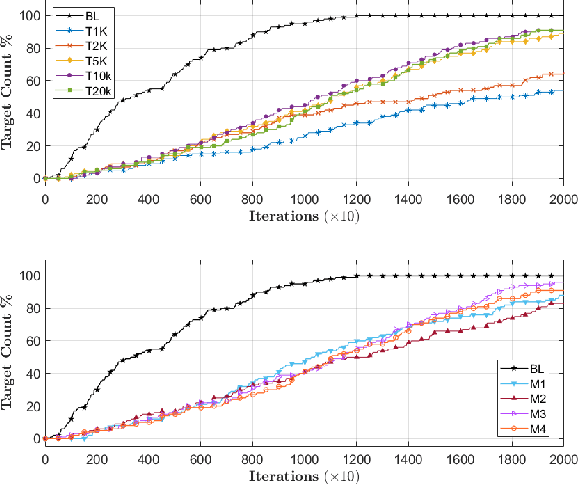
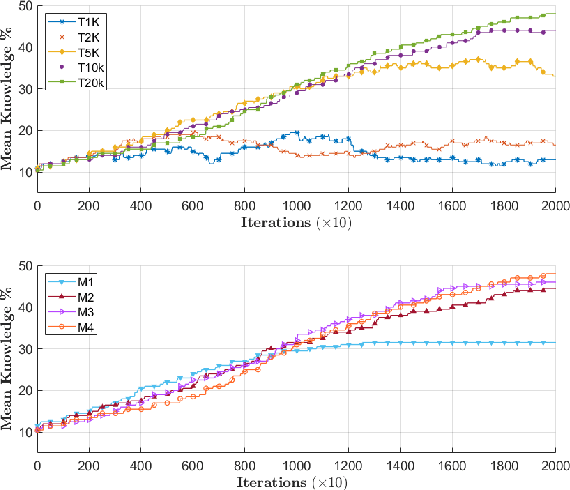
Abstract:Achieving knowledge sharing within an artificial swarm system could lead to significant development in autonomous multiagent and robotic systems research and realize collective intelligence. However, this is difficult to achieve since there is no generic framework to transfer skills between agents other than a query-response-based approach. Moreover, natural living systems have a "forgetfulness" property for everything they learn. Analyzing such ephemeral nature (temporal memory properties of new knowledge gained) in artificial systems has never been studied in the literature. We propose a behavior tree-based framework to realize a query-response mechanism for transferring skills encoded as the condition-action control sub-flow of that portion of the knowledge between agents to fill this gap. We simulate a multiagent group with different initial knowledge on a foraging mission. While performing basic operations, each robot queries other robots to respond to an unknown condition. The responding robot shares the control actions by sharing a portion of the behavior tree that addresses the queries. Specifically, we investigate the ephemeral nature of the new knowledge gained through such a framework, where the knowledge gained by the agent is either limited due to memory or is forgotten over time. Our investigations show that knowledge grows proportionally with the duration of remembrance, which is trivial. However, we found minimal impact on knowledge growth due to memory. We compare these cases against a baseline that involved full knowledge pre-coded on all agents. We found that knowledge-sharing strived to match the baseline condition by sharing and achieving knowledge growth as a collective system.
HeRoSwarm: Fully-Capable Miniature Swarm Robot Hardware Design With Open-Source ROS Support
Nov 06, 2022



Abstract:Experiments using large numbers of miniature swarm robots are desirable to teach, study, and test multi-robot and swarm intelligence algorithms and their applications. To realize the full potential of a swarm robot, it should be capable of not only motion but also sensing, computing, communication, and power management modules with multiple options. Current swarm robot platforms developed for commercial and academic research purposes lack several of these critical attributes by focusing only on a few of these aspects. Therefore, in this paper, we propose the HeRoSwarm, a fully-capable swarm robot platform with open-source hardware and software support. The proposed robot hardware is a low-cost design with commercial off-the-shelf components that uniquely integrates multiple sensing, communication, and computing modalities with various power management capabilities into a tiny footprint. Moreover, our swarm robot with odometry capability with Robot Operating Systems (ROS) support is unique in its kind. This simple yet powerful swarm robot design has been extensively verified with different prototyping variants and multi-robot experimental demonstrations.
KT-BT: A Framework for Knowledge Transfer Through Behavior Trees in Multi-Robot Systems
Sep 07, 2022
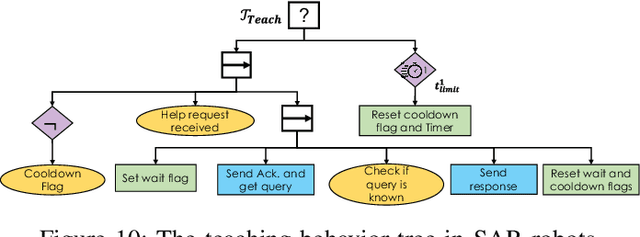
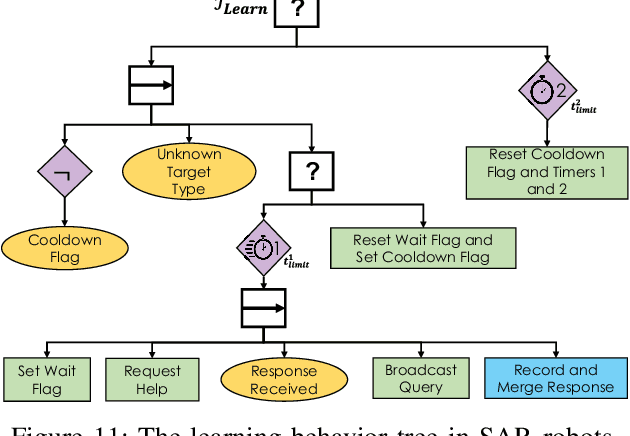
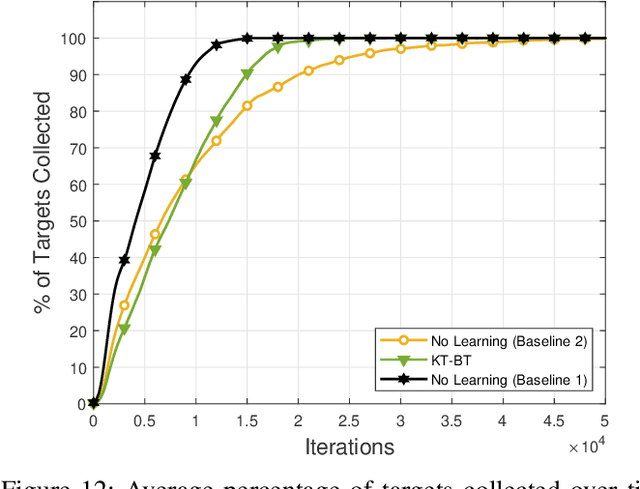
Abstract:Multi-Robot and Multi-Agent Systems demonstrate collective (swarm) intelligence through systematic and distributed integration of local behaviors in a group. Agents sharing knowledge about the mission and environment can enhance performance at individual and mission levels. However, this is difficult to achieve, partly due to the lack of a generic framework for transferring part of the known knowledge (behaviors) between agents. This paper presents a new knowledge representation framework and a transfer strategy called KT-BT: Knowledge Transfer through Behavior Trees. The KT-BT framework follows a query-response-update mechanism through an online Behavior Tree framework, where agents broadcast queries for unknown conditions and respond with appropriate knowledge using a condition-action-control sub-flow. We embed a novel grammar structure called stringBT that encodes knowledge, enabling behavior sharing. We theoretically investigate the properties of the KT-BT framework in achieving homogeneity of high knowledge across the entire group compared to a heterogeneous system without the capability of sharing their knowledge. We extensively verify our framework in a simulated multi-robot search and rescue problem. The results show successful knowledge transfers and improved group performance in various scenarios. We further study the effects of opportunities and communication range on group performance, knowledge spread, and functional heterogeneity in a group of agents, presenting interesting insights.
 Add to Chrome
Add to Chrome Add to Firefox
Add to Firefox Add to Edge
Add to Edge